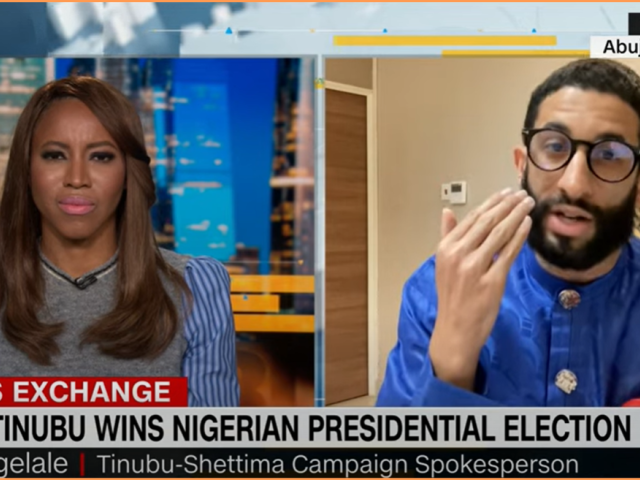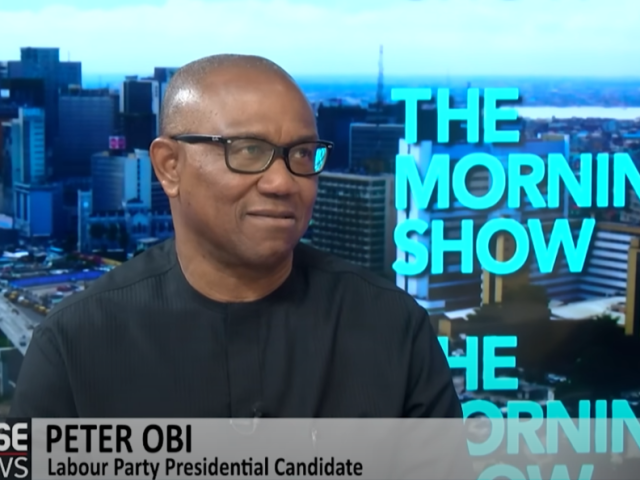IN SHORT: Nigeria’s influential former president Olusegun Obasanjo has backed Peter Obi as his preferred presidential candidate in the upcoming elections. Now a false quote suggests the governing APC party wants to restrict media access in its northern stronghold, to limit any rise in Obi’s popularity.
“Now that Obi endorsement is everywhere, we must deny people in the core north access to internet and radio,” reads what appears to be a quote doing the rounds on Facebook.
The quote is attributed to Festus Keyamo, spokesperson for Nigeria’s governing All Progressives Congress (APC) presidential campaign council.
Peter Obi is the Labour Party’s presidential candidate in the country’s 2023 elections, which kick off on 25 February.
It’s reported that Nigeria’s influential former president Olusegun Obasanjo endorsed Obi as his preferred candidate on 1 January.
Other politicians then reportedly backed Obasanjo’s decision. The endorsement, from such a prominent figure, has attracted a lot of reaction from other presidential candidates and their supporters.
The implication of the quote is that a news blackout in the north, seen as an APC stronghold, would limit any bump in popularity for Obi there due to the endorsement. It has also appeared on Facebook here, and here,
But did Keyamo really say internet and radio access must be restricted in the north after Obasanjo’s endorsement of Obi?

No evidence for quote
The Facebook posts don’t say where or when Keyamo supposedly made the statement. This is typical of false statements posted on social media.
A search of Keyamo’s verified Twitter account for the quote returned no result.
And it has not been reported by any credible local media. Such a controversial statement about denying voters their political rights would have made headlines.
Africa Check has recently checked several false statements attributed to key political figures, as seen here, here, here, here and here.
As the Nigerian elections approach, avoid falling for false information. Read our guide on how to determine if information is correct. And our analysis goes into the different disinformation trends seen in Nigeria’s campaign season.
Republish our content for free
For publishers: what to do if your post is rated false
A fact-checker has rated your Facebook or Instagram post as “false”, “altered”, “partly false” or “missing context”. This could have serious consequences. What do you do?
Click on our guide for the steps you should follow.
Publishers guideAfrica Check teams up with Facebook
Africa Check is a partner in Meta's third-party fact-checking programme to help stop the spread of false information on social media.
The content we rate as “false” will be downgraded on Facebook and Instagram. This means fewer people will see it.
You can also help identify false information on Facebook. This guide explains how.




Add new comment